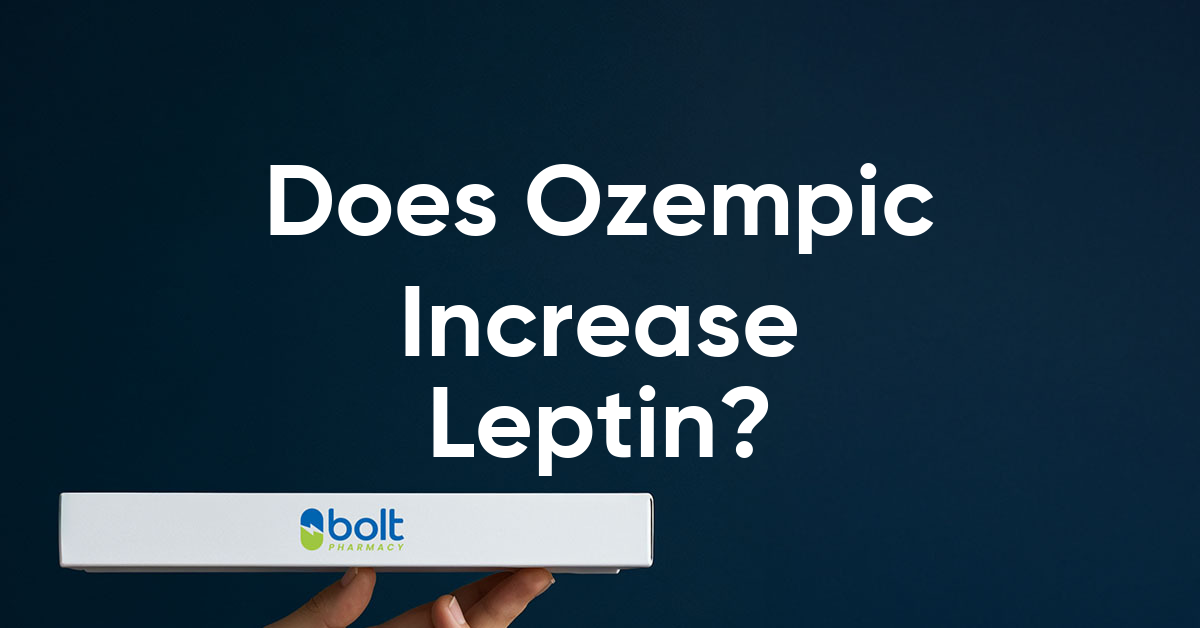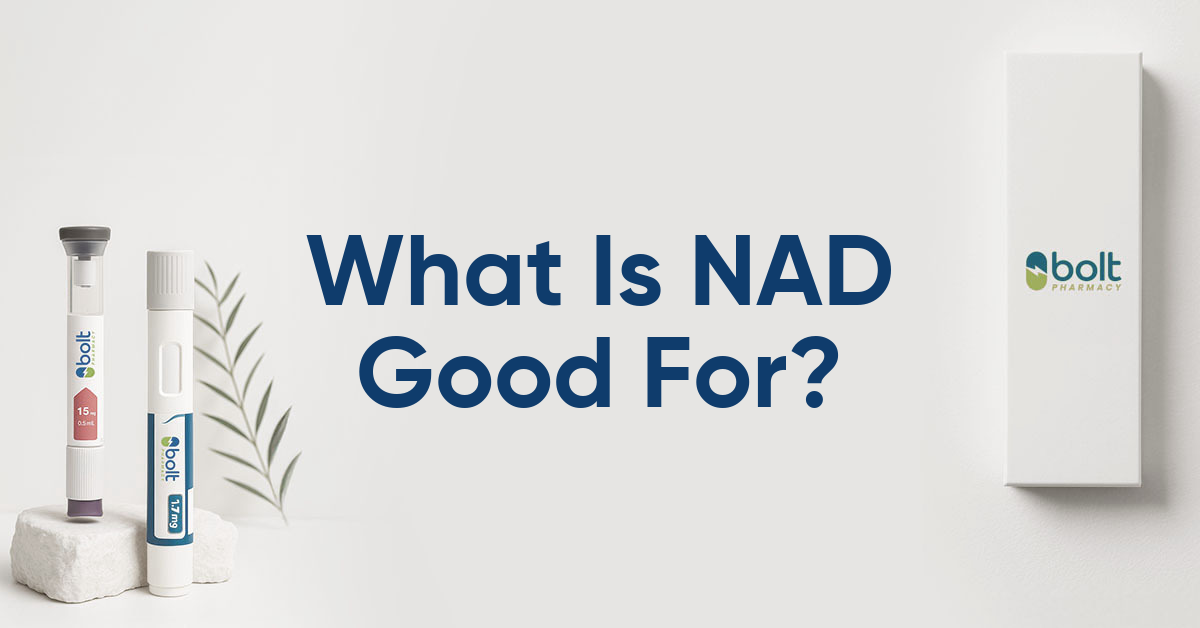Ozempic (semaglutide) has gained considerable attention for its effects on appetite and weight management, prompting questions about its interaction with leptin, the hormone that signals satiety to the brain. Understanding whether Ozempic increases leptin levels is important for patients and clinicians considering this GLP-1 receptor agonist for type 2 diabetes management. Current evidence indicates that semaglutide does not directly increase leptin production; rather, leptin levels typically decrease as fat mass reduces during treatment. This article examines the relationship between Ozempic and leptin, clarifying how this medication influences appetite regulation and metabolic health through distinct mechanisms.
Summary: Ozempic (semaglutide) does not increase leptin levels; leptin concentrations typically decrease proportionally as fat mass reduces during treatment.
- Semaglutide is a GLP-1 receptor agonist licensed in the UK for type 2 diabetes at doses up to 2 mg weekly, not for weight loss.
- The medication reduces appetite through direct GLP-1 receptor activation in brain satiety centres, not by increasing leptin production.
- Leptin levels decrease with semaglutide treatment as adipose tissue mass reduces, which is the expected physiological response.
- Common adverse effects include gastrointestinal symptoms; serious risks include pancreatitis, gallbladder disease, and diabetic retinopathy worsening.
- NICE guidance recommends specialist prescribing of Wegovy (higher-dose semaglutide) for weight management, typically for maximum 2 years.
- Regular monitoring should include HbA1c, renal function, weight, and retinal assessment in patients with pre-existing diabetic retinopathy.
Table of Contents
Understanding Leptin and Its Role in Weight Regulation
Leptin is a hormone predominantly produced by adipose tissue (body fat) that plays a crucial role in regulating energy balance and body weight. Often referred to as the 'satiety hormone', leptin communicates with the hypothalamus in the brain to signal the body's energy stores and influence appetite. When fat stores increase, leptin levels rise, theoretically signalling the brain to reduce food intake and increase energy expenditure. Conversely, when fat stores diminish, leptin levels fall, contributing to increased hunger and changes in energy expenditure, although this process is multifactorial in humans.
In individuals with obesity, a phenomenon known as leptin resistance frequently develops. Despite elevated leptin levels corresponding to increased adipose tissue, the brain becomes less responsive to leptin's signals. This resistance means the hypothalamus does not receive appropriate satiety messages, leading to continued hunger despite adequate or excessive energy stores. This creates a challenging cycle where the body's natural weight regulation mechanisms become impaired.

How Ozempic Works in the Body
Ozempic (semaglutide) is a glucagon-like peptide-1 receptor agonist (GLP-1 RA) licensed in the UK for treating type 2 diabetes mellitus at doses of 0.25 mg (starting dose), titrated to 0.5-1 mg weekly (up to 2 mg). At a higher dose (2.4 mg weekly), semaglutide is marketed as Wegovy and licensed specifically for weight management in adults with a BMI of ≥30 kg/m² or ≥27 kg/m² with weight-related comorbidities (with lower thresholds for certain ethnic groups), as an adjunct to diet and exercise. It's important to note that Ozempic is not licensed for weight loss in the UK.
The Medicines and Healthcare products Regulatory Agency (MHRA) has approved semaglutide based on robust clinical evidence demonstrating its efficacy in glycaemic control and, for Wegovy, weight reduction. Semaglutide mimics the action of naturally occurring GLP-1, an incretin hormone released from the intestine in response to food intake.
The medication works through several complementary mechanisms. Primarily, it enhances glucose-dependent insulin secretion from pancreatic beta cells, meaning insulin release increases when blood glucose levels are elevated but not when they are normal or low, thereby reducing hypoglycaemia risk (though the risk increases when used with sulfonylureas or insulin). Simultaneously, semaglutide suppresses inappropriate glucagon secretion from pancreatic alpha cells, which would otherwise raise blood glucose levels.
Beyond its effects on glucose metabolism, semaglutide significantly influences appetite and food intake. It acts on GLP-1 receptors in the brain, particularly in areas regulating satiety and reward, leading to reduced hunger and increased feelings of fullness. The medication also slows gastric emptying, prolonging the sensation of satiety after meals and potentially affecting the absorption of oral medications. These combined effects result in reduced caloric intake and subsequent weight loss, which has been consistently demonstrated in clinical trials.
Important safety considerations include the risk of diabetic retinopathy worsening (particularly with rapid glycaemic improvement), gallbladder disease (including cholelithiasis and cholecystitis), pancreatitis, and dehydration. Semaglutide is not recommended during pregnancy or breastfeeding, and women of childbearing potential should use effective contraception. NICE guidance (TA875) specifies that Wegovy should be prescribed within specialist weight management services, typically for a maximum duration of 2 years.
The Relationship Between GLP-1 Medications and Appetite Hormones
The question of whether Ozempic directly increases leptin levels requires careful examination of available evidence. Current research suggests that semaglutide does not directly stimulate leptin production or secretion. There is no established pharmacological mechanism by which GLP-1 receptor agonists would increase leptin synthesis from adipocytes. Human clinical data from the STEP trials (evaluating semaglutide 2.4 mg) consistently show that leptin levels decrease with treatment, corresponding to the reduction in fat mass.
When patients lose weight whilst taking semaglutide, their leptin levels typically decrease in proportion to the reduction in adipose tissue mass. This is the expected physiological response, as leptin production correlates with fat stores. Some preclinical studies have suggested potential interactions between GLP-1 and leptin signalling pathways, but evidence for enhanced leptin sensitivity with GLP-1 RAs in humans remains limited and heterogeneous.
What appears more significant is how semaglutide influences appetite regulation through direct GLP-1 receptor activation rather than through leptin modulation. GLP-1 receptors are present in key brain regions controlling hunger and satiety, allowing semaglutide to reduce appetite independently of leptin pathways. This may explain why GLP-1 RAs can be effective for weight management even in individuals with leptin resistance.
GLP-1 and leptin pathways do interact within the central nervous system in animal models. Both influence overlapping neural circuits controlling appetite and energy expenditure. However, it's important to distinguish between these preclinical findings and established clinical effects in humans. While these interactions are biologically plausible and of scientific interest, there is no evidence from human studies that semaglutide treatment increases circulating leptin concentrations.
What This Means for Weight Loss and Metabolic Health
For patients and healthcare professionals, understanding that Ozempic does not increase leptin levels but works through direct GLP-1 receptor activation is clinically relevant. The medication's effectiveness in promoting weight loss does not depend on raising leptin concentrations but rather on its direct effects on appetite centres in the brain, glucose metabolism, and gastric emptying. This distinction is important when setting realistic expectations about how the medication works.
NICE guidance recommends GLP-1 receptor agonists as part of comprehensive diabetes management (NG28) and, in specific circumstances, for weight management (TA875) when lifestyle interventions alone have been insufficient. For weight management, NICE specifies that Wegovy (not Ozempic) should be prescribed within specialist weight management services for adults with a BMI of ≥30 kg/m² or ≥27 kg/m² with weight-related comorbidities (with lower thresholds for people from certain ethnic groups), typically for a maximum of 2 years.
Patients typically experience improved glycaemic control and reduced cardiovascular risk factors with semaglutide treatment. The SELECT trial has recently demonstrated cardiovascular outcome benefits with Wegovy in patients with established cardiovascular disease and overweight/obesity but without diabetes, while the SUSTAIN-6 trial showed cardiovascular benefits with Ozempic in patients with type 2 diabetes at high cardiovascular risk.
Patients should be aware that weight loss achieved with semaglutide, like weight loss through any method, will naturally result in decreased leptin levels as fat mass reduces. This is a normal physiological response and does not indicate treatment failure.
From a safety perspective, common adverse effects include gastrointestinal symptoms such as nausea, vomiting, diarrhoea, and constipation, which typically diminish over time. Patients should contact their GP or NHS 111 urgently if they experience severe, persistent abdominal pain (which may indicate pancreatitis or gallbladder disease), persistent vomiting, jaundice, or signs of dehydration. Regular monitoring should include HbA1c (in diabetes), renal function (especially if experiencing significant gastrointestinal side effects), weight, and retinal assessment in those with pre-existing diabetic retinopathy. Healthcare professionals should emphasise that semaglutide is most effective when combined with dietary modifications and increased physical activity, creating a comprehensive approach to metabolic health.
Scientific References
- Ozempic 0.5 mg solution for injection in pre-filled pen - Summary of Product Characteristics (SmPC).
- Semaglutide for managing overweight and obesity. Technology appraisal guidance [TA875].
- Weight regain and cardiometabolic effects after withdrawal of semaglutide: The STEP 1 trial extension.
- Wegovy 0.25 mg, FlexTouch solution for injection in pre-filled pen - Summary of Product Characteristics (SmPC).
- Semaglutide and Cardiovascular Outcomes in Obesity without Diabetes (SELECT trial).
- Semaglutide and Cardiovascular Outcomes in Patients with Type 2 Diabetes (SUSTAIN-6).
Frequently Asked Questions
How does Ozempic affect leptin levels in the body?
Ozempic does not increase leptin levels; instead, leptin concentrations typically decrease as patients lose fat mass during treatment. This reduction is a normal physiological response to decreased adipose tissue and does not indicate treatment failure.
If Ozempic doesn't increase leptin, how does it reduce appetite?
Semaglutide reduces appetite by directly activating GLP-1 receptors in brain regions that control hunger and satiety, independently of leptin pathways. It also slows gastric emptying, prolonging feelings of fullness after meals.
Is Ozempic licensed for weight loss in the UK?
Ozempic is licensed only for type 2 diabetes management in the UK at doses up to 2 mg weekly. For weight management, a higher dose of semaglutide (2.4 mg weekly) is marketed as Wegovy and must be prescribed within specialist weight management services according to NICE guidance.
The health-related content published on this site is based on credible scientific sources and is periodically reviewed to ensure accuracy and relevance. Although we aim to reflect the most current medical knowledge, the material is meant for general education and awareness only.
The information on this site is not a substitute for professional medical advice. For any health concerns, please speak with a qualified medical professional. By using this information, you acknowledge responsibility for any decisions made and understand we are not liable for any consequences that may result.
Heading 1
Heading 2
Heading 3
Heading 4
Heading 5
Heading 6
Lorem ipsum dolor sit amet, consectetur adipiscing elit, sed do eiusmod tempor incididunt ut labore et dolore magna aliqua. Ut enim ad minim veniam, quis nostrud exercitation ullamco laboris nisi ut aliquip ex ea commodo consequat. Duis aute irure dolor in reprehenderit in voluptate velit esse cillum dolore eu fugiat nulla pariatur.
Block quote
Ordered list
- Item 1
- Item 2
- Item 3
Unordered list
- Item A
- Item B
- Item C
Bold text
Emphasis
Superscript
Subscript












